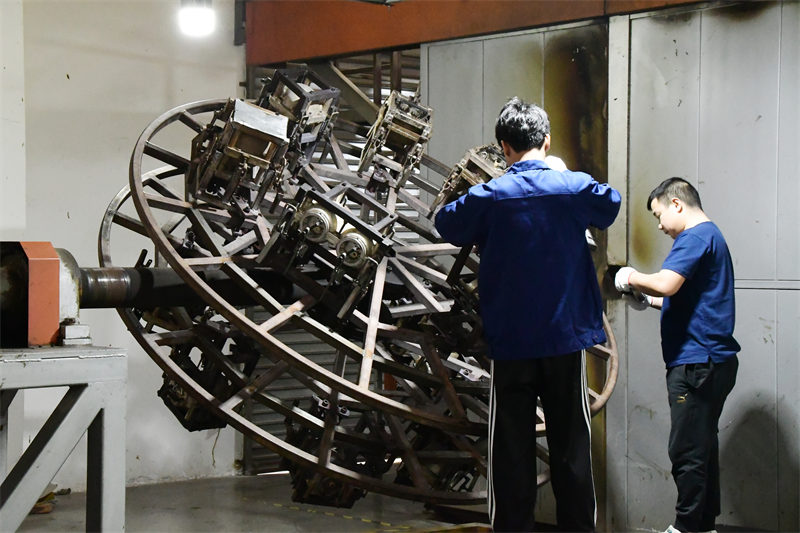What are the Main Materials Used in Rotational Molding Molds Fabrication?
 Mar 26,2024
Mar 26,2024

What are the Main Materials Used in Rotational Molding Molds Fabrication?
The main materials used in rotational molding molds fabrication include aluminum, steel, stainless steel, and fiberglass. Each material has its own unique properties and advantages, making them suitable for different applications and production requirements.

1. Aluminum
Aluminum is a popular choice for rotational molding molds due to its excellent thermal conductivity, lightweight properties, and relatively low cost. Aluminum molds are ideal for applications where high-volume production and fast cycle times are required. They offer good corrosion resistance and can be easily machined to achieve tight tolerances. However, aluminum molds may not be suitable for products requiring extremely high temperatures or applications where the mold needs to withstand significant wear and tear.
2. Steel
Steel molds are more durable and resistant to wear and tear compared to aluminum molds. They are often used in applications where the mold will be subjected to repeated use and high temperatures. Steel molds are ideal for producing products with complex geometries and intricate features, such as the smart robotic shell. They can be heat-treated to improve their strength and hardness, making them suitable for high-production volumes and demanding applications. However, steel molds are heavier and more expensive than aluminum molds, and they may require additional cooling channels to maintain uniform temperature distribution.
3. Stainless Steel
Stainless steel molds are primarily used in applications where corrosion resistance is a critical factor. They are often chosen for products that will be exposed to harsh environments or chemicals. Stainless steel molds offer high durability and can withstand the high temperatures associated with the rotational molding process. However, they are more expensive than aluminum and steel molds and may require additional cooling channels for efficient heat dissipation.
4. Fiberglass
Fiberglass molds are typically used for prototyping or for products with complex shapes that are difficult to produce using traditional metal molds. Fiberglass molds are lightweight and offer good thermal insulation properties. However, they are less durable than metal molds and may require more frequent repairs or replacement. Fiberglass molds are also more expensive than aluminum molds and may not be suitable for high-volume production due to their lower thermal conductivity.
The choice of material for rotational molding tools depends on factors such as product design, production size, and specific manufacturing requirements. The quality and finish of the rotomolded product is directly related to the quality of the mold. If you require further assistance, please feel free to contact our technical sales department at Light Venus.
 Tel: 0086-13632687993
Tel: 0086-13632687993  Email: roto@lightvenus.com
Email: roto@lightvenus.com

 Home
Home How to Incorporate Threads into Rotomolded Products
How to Incorporate Threads into Rotomolded Products  You May Also Like
You May Also Like



 Tel
Tel
 Email
Email
 Address
Address








